Pleasurable food education – what does it mean?
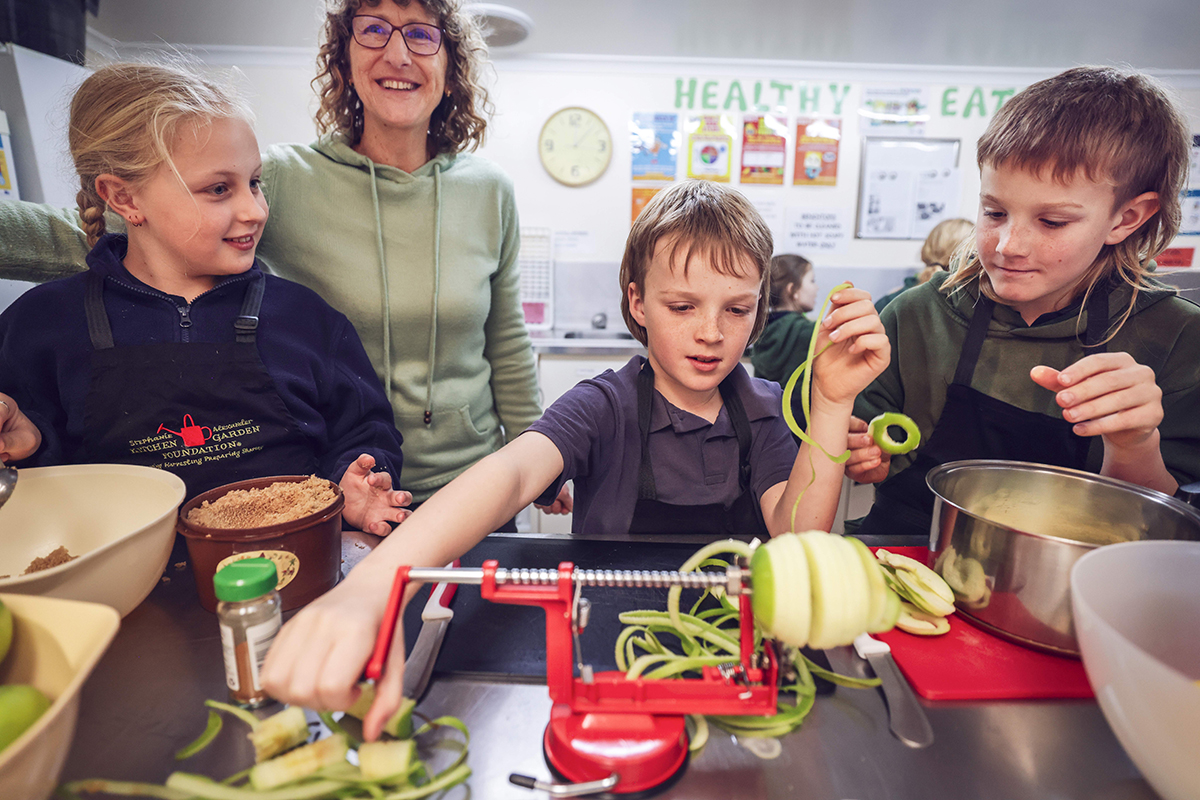
On a cold winter’s morning, a gumboot-clad, wide-eyed child totters out into the backyard, hand-in-hand with her parent. In a small row of soil, a few feathery green fronds sway. Little hands and old hands sweep the dirt together to find hints of golden orange. A single tiny carrot is plucked from the earth, covered in dirt and with a long wispy tail. A quick wash and then it is hers to try. Crunchy, sweet and bright. She will visit this carrot patch a few times more and then forever in her mind. Her first taste of pleasurable food education lasts a lifetime.
Frequently across our materials, you’ll find that phrase: pleasurable food education. It’s the crux of what we do. But what does it mean? And what does pleasurable food education look like in practice?
Pleasurable food education is easy, simple and joyful: it’s picking an apple fresh from the tree, it’s gathering together the ingredients for a simple tomato sandwich, it’s constructing a risotto. It’s having children involved in age-appropriate growing, harvesting, preparing and sharing delicious food together. It’s preparing a child for a healthier and happier life.
– Stephanie Alexander AO, Kitchen Garden Foundation Founder
Pleasurable food education is an approach to learning about food that empowers children and young people to develop an appreciation of seasonal produce, practical skills, and a positive, confident, and healthy relationship with food – for life. It is designed to inspire children and young people to understand and connect with fresh, seasonal, delicious food through fun, hands-on learning.
We’ve spent some time consolidating our definition of pleasurable food education and how it can look in practice. Here’s how we see it:
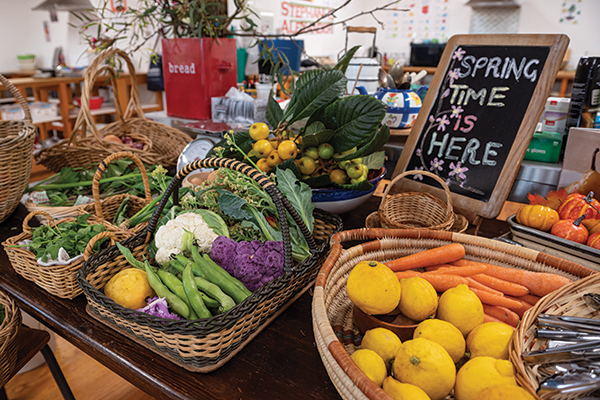
Fresh and seasonal
The seasons are respected and guide all activity in the kitchen and garden. They give us opportunities to incorporate fresh produce and educate children and young people about the value of wholefoods. We can use fresh and seasonal produce to create conversations about sustainability, wellbeing, society, and culture.
Don’t be frightened: fresh and seasonal doesn’t mean everything has to be completely from scratch. It’s about looking at what’s in season, what’s local to you and what might be fresh in the garden. Be guided by your senses to see what’s tasty and abundant, then use that to plan activities in the garden and meals in the kitchen.
Pleasurable food education in practice:
- Get into the garden: a treasure hunt to find and identify seasonal produce or a deep observation of bugs to be found – both friend and foe.
- Freshen up the kitchen: find a fresh zing for your kitchen adventures with a drizzle of salsa verde, a dollop of homemade tomato sauce, or a sprinkle of parsley.
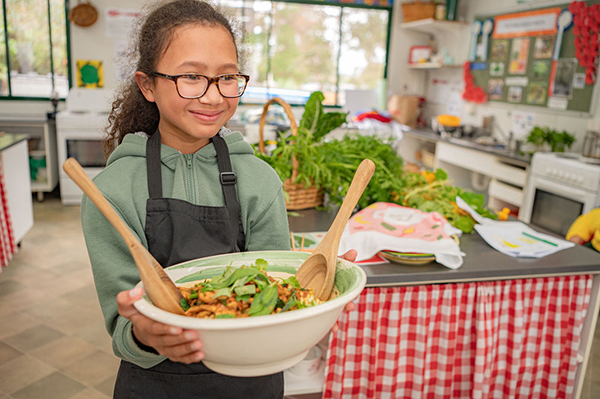
Delicious
When you pick produce at its peak, it’s packed with flavour. This delicious simplicity is what pleasurable food education is all about. Focus on the joys of sensory exploration, then talk up the benefits of fresh, seasonal, delicious food being shared.
Find creative ways to enhance the flavour and natural strengths of the fresh produce. Sometimes all an ingredient needs to shine is its best friend: think of classic flavour pairings like tomato and basil.
Other times, quick and easy preparation, like grilling or flashing in the pan, can unlock a burst of taste.
Pleasurable food education in practice:
- Matchmaking: play around with classic flavour pairings like pumpkin and sage, and experiment with others like pear and parmesan, strawberry and basil, or watermelon and peppermint.
- Reinvent a winning dish: use classic favourites like pizza and pasta as a lure to experiment with new tastes, i.e., pizza with cheesy broccoli.
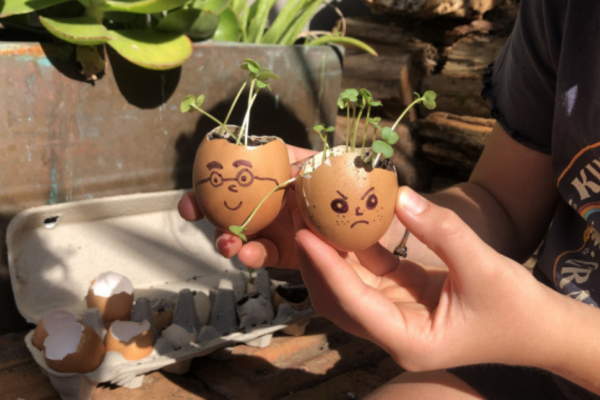
Fun
Perhaps the most important aspect of pleasurable food education is that the experience should be fun! Fun experiences grow positive associations: from trying delicious foods prepared by hand, to being emboldened by the trust in learning how to use a knife.
Like everyone, children and young people are more receptive to new ideas, experimentation, and learning when they’re engaged and having fun.
Celebrate in the magic of the natural world and the science of food production: watching a seed pop through the soil for the first time, the wonder of curbing oxidisation of fruit with some lemon juice, and the joy of rolling out fresh pasta dough.
Pleasurable food education in practice:
- Knead to try: use dough to keep young minds focused and engaged, whether through making new pasta shapes, topping pizzas, or rolling flatbreads or scrolls.
- Salad of the imagination: explore the visual, flavour and texture combinations of seasonal ingredients in a fresh salad, with a homemade vinaigrette.
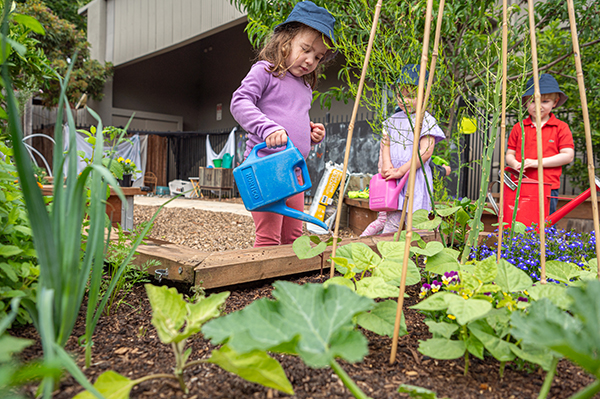
Hands-on
Giving children and young people an invitation to participate in ways that match their age, interest and skill level generates interest in the food they are growing, preparing, and sharing.
A hands-on approach is empowering, builds self-worth, and refines social and emotional skills. It gives children and young people a voice and a say in what they do and how things are run.
Being literal about being hands-on takes into account the many benefits of tactile and manual work. Every sprinkle, knead and fold can be a meaningful experience that has the potential to open our young people’s minds to new, positive food habits.
Pleasurable food education in practice:
- Kids to the front: encourage as much independent preparation as possible, especially in the final step, where children and young people can enjoy the final outcome of their labour.
- From the beginning: plant seedlings and see the physical and emotional rewards of celebrating at every stage of a plant’s growth.
Pleasurable food education is easy and enjoyable. It’s about following your intuition, keeping it simple, and connecting children and young people to fresh and seasonal produce through practical and fun experiences. It’s inspiring a joy of fresh and seasonal produce – and the cycle of growing, harvesting, preparing and sharing – in simple steps and actions that will inspire a lifelong love of good food.
Find out more about a Kitchen Garden Program membership to bring pleasurable food education to your school or early childhood service.
A downloadable PFE resource is available to Members on the Shared Table - click here.
< Back to Latest News
